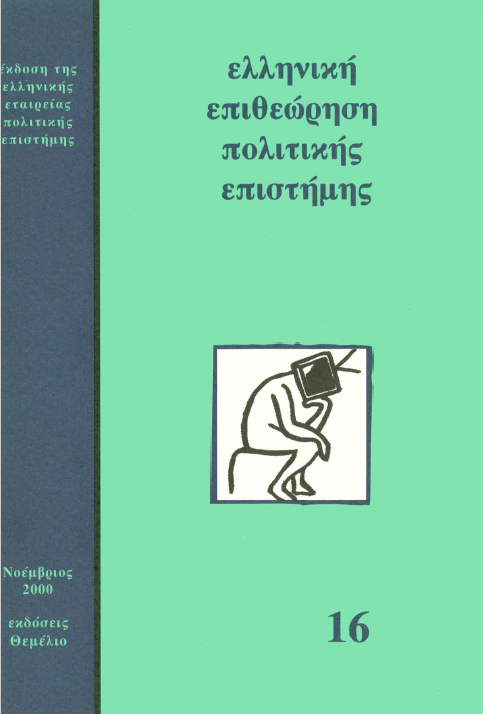Learned helplessnes political behavior and mass communications: findings from a study of Athenian students
Abstract
This paper presents research results on the students’ feelings of political inefficacy, apathy and cynicism. The theoretical argument is based on Seligman’s theory of learned helplessness and its relationship to Gidden’s notion of ontological insecurity. Since both these conditions are related to risk perception and loss of control, the effects of media via the promotion of danger and negative news, were also examined. The findings indicated three psychosocial profiles: (a) students who are «pragmatists, (b) the «cynical pessimists» and (c) the majority of students who are «uncertain» and «awkward» towards both personal and public affairs, Media use differentiates mainly the first two groups: the pragmatists use media extensively for personal reasons, while cynical pessimists appear to deny media use altogether. On the contrary, uncertain and awkward students make an average and occasional media use which appears to maintain, if not strengthen, their uncertainty and awkwardness.
Article Details
- How to Cite
-
Ντάβου Μ., & Αρμενάκης Α. (2017). Learned helplessnes political behavior and mass communications: findings from a study of Athenian students. Greek Political Science Review, 16, 72–107. https://doi.org/10.12681/hpsa.15187
- Section
- Articles

This work is licensed under a Creative Commons Attribution-NonCommercial-ShareAlike 4.0 International License.
Authors who publish with this journal agree to the following terms:
Authors retain copyright and grant the journal right of first publication with the work simultaneously licensed under a Creative Commons Attribution licence that allows others to share the work with an acknowledgement of the work's authorship and initial publication in this journal.
Authors are able to enter into separate, additional contractual arrangements for the non-exclusive distribution of the journal's published version of the work (e.g. post it to an institutional repository or publish it in a book), with an acknowledgement of its initial publication in this journal.
Authors are permitted and encouraged to post their work online (preferably in institutional repositories or on their website) prior to and during the submission process, as it can lead to productive exchanges, as well as earlier and greater citation of published work (See The Effect of Open Access).



